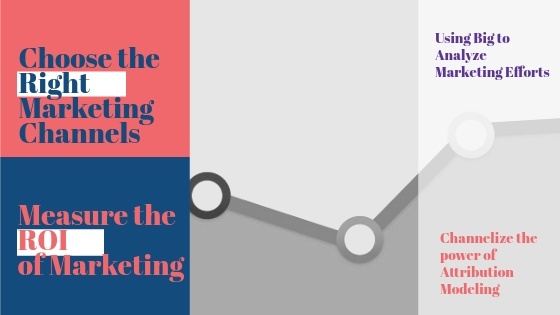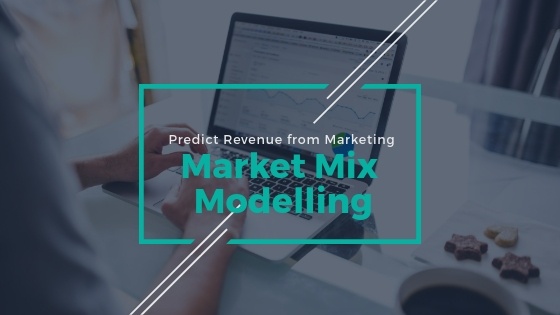Attribution Modeling: Bring the Power of Big Data into Marketing
Attribution modeling is the method of analyzing the impact of marketing initiatives on conversions. In attribution modeling, customer's data is...
2 min read
Anurag : Feb 24, 2017 12:00:00 AM


Data science is now becoming one of the most important field in every industry. It helps people use technology and derive valuable information from a vast amount of data at their disposal. This helps them predict consumer behavior and preferences (like needs, spending patterns) which in turn helps consumers make quicker and easier decisions. A consumer would invariably be drawn to an application that can predict their intent and make life easier for them.
Businesses are becoming increasingly aware of how analytics can help improve their mobile apps. Predictive analytics in business gives you an edge above simple data analytics and keeps you a step ahead.
The value of predictive analytics in mobile apps has been proven time and again in the consumer landscape by products like Apple Music, Spotify and Siri. This applies to the field of mobile applications as well. Predictive mobile applications - applications that can anticipate its user’s needs - is what will drive the app stores in the future.

The retail space has undoubtedly been one of the top gainers of the advances made in the field of data sciences and predictive analytics. Consumers want to use technology to make their lives easier. When it comes to online or mobile shopping apps, they expect the retailer to know their past purchase history and make the shopping experience a delight for them.
If a business collects enough information for its customers and uses this data to present more context-aware choices, then it is essentially making it easier for these customers to take decision. Such satisfied customers are likely to be loyal to the business.
Customers want a better mobile experience and a more personalized list of products to buy. They do not mind sharing their spending and lifestyle habits with businesses if it helps. This exchange of information will facilitate the introduction of predictive analytics in retail apps big time.
The number of services making multimedia content - audio, video - available via streaming is going up by the day. Look at the number of players in just the music streaming area - Apple Music & iTunes, Spotify, Tidal, Google Play Music, SoundCloud - you get the picture. They all offer almost the same things - with just small differences of artists available or how content is presented. So how do they win over the customer from another service? How do they prove they are better than the other service? The answer is how good their predictive analytics is.
All these services use predictive analysis engines to find out what the user is listening to and give them recommendations of other music they might like. This helps customers discover music they would enjoy without going through the trouble of browsing through hundreds of genres, albums and songs. The service that finally wins the customer’s loyalty is the one which gives them the best results - based on their preferences, mood or even the time of the day (whether they are at work, in commute or at home). The possibilities of how these services can evolve are endless and it can only go upwards from here.

The banking industry has already found a lot of uses with data sciences - for instance using big data analytics for credit risk calculation and fraud detection. But with the advances in mobile technologies, retail banks face more challenges in reaching new customers and stay ahead of the multitude of mobile payment options coming up.
IoT and predictive analytics can play a major role in helping banks understand consumer needs. By connecting ATMs, banks and getting and analyzing location specific data, usage trends, service requests etc, banks can get valuable information to attract and retain customers as well as identify unsatisfied customers. By being context-aware, banks can provide advice to consumers when and where they want it through the convenience of mobile apps.
Building predictive context-aware mobile apps is the way forward in 2017. It is not always easy and there can be roadblocks, but if done right it will give businesses a much needed head start to get ahead of competition.
Are you looking for help in building your mobile apps or implementing a big data solution for your business?

Attribution modeling is the method of analyzing the impact of marketing initiatives on conversions. In attribution modeling, customer's data is...

In the days of traditional marketing, the marketers knew how their efforts accounted for sales. But this is not the case anymore. With so many...